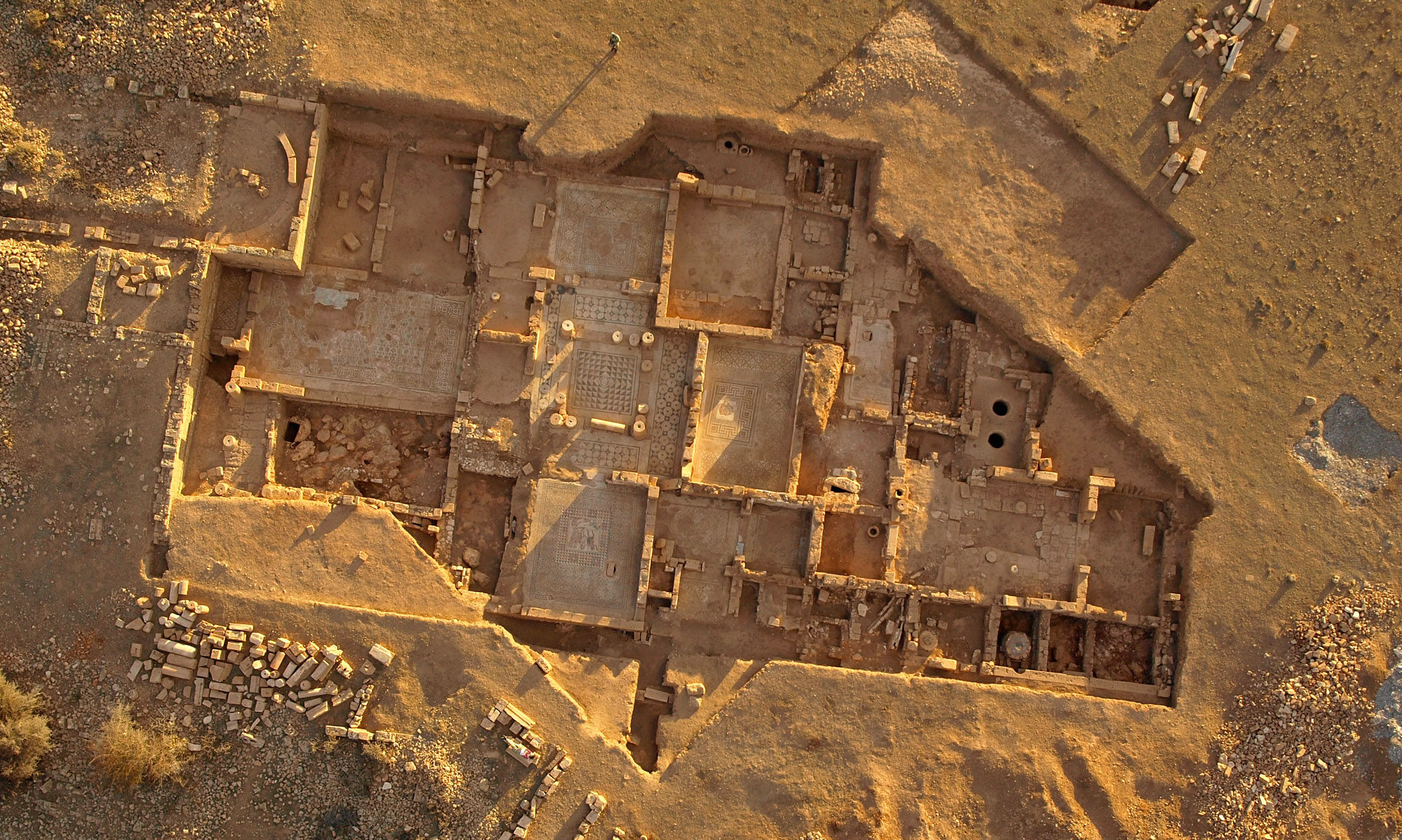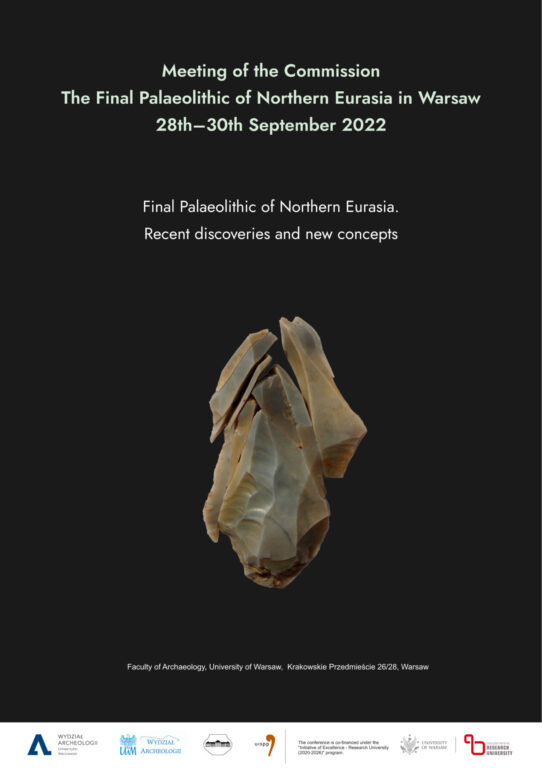Koleżanki i Koledzy,
z przyjemnością informujemy, że dr Ricardo Fernandes (Max-Planck-Institut für Geoanthropologie, Jena) odwiedzi Wydział Archeologii Uniwersytetu Warszawskiego z serią warsztatów/wykładów.
The secret life of furniture. A different view on beds, chairs, and thrones – wykład
W ramach seminarium „Archeologia Egiptu i Nubii”, prowadzonego w Katedrze Archeologii Egiptu i Nubii, na Wydziale Archeologii Uniwersytetu Warszawskiego, zapraszamy na wykład: Dr. Manon Schutz (The University of Oxford and Universität Münster): The secret life of furniture. A different view on beds, chairs, and thrones
Czytaj dalej „The secret life of furniture. A different view on beds, chairs, and thrones – wykład”
Integrated Microscopy Approaches in Archaeobotany (IMAA) Workshop
The next Integrated Microscopy Approaches in Archaeobotany (IMAA) Workshop will take place at the University of Reading (UK) on the 1st – 2nd April 2023. The themes for this year’s workshop are:
Czytaj dalej „Integrated Microscopy Approaches in Archaeobotany (IMAA) Workshop”
Stypendium na Start – Rektorski Fundusz Stypendialny
Program „Stypendium na Start” skierowany do najzdolniejszych studentów i doktorantów, którzy zostali przyjęci w danym roku akademickim na studia lub do szkoły doktorskiej.
Program przewiduje trzy typy stypendiów:
„Stypendium na Start dla Olimpijczyków”
„Stypendium na Start dla Sportowców”
„Stypendium na Start dla Doktorantów”
Więcej informacji:
https://bpm.uw.edu.pl/stypendium-na-start-rektorski-fundusz-stypendialny/
Termin składania wniosków – do dnia 10 lutego 2023 roku
Konferencja „The Final Palaeolithic of Northern Eurasia” – 28-30 września, Warszawa
Young Researchers in Archaeometry Workshop (5-6 September 2022, online)
We are happy to announce the 5th workshop “Young Researchers in Archaeometry” that will be held at the online on 5-6 September 2022. Following our tradition, the meeting welcomes early career researchers (master, PhD, post-doc) with a focus on topics intersecting natural science, cultural heritage studies and archaeology.
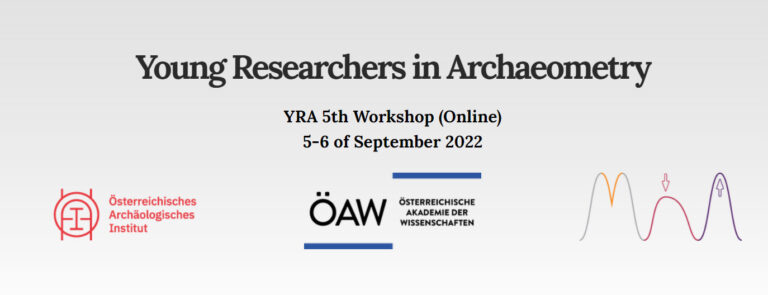
As promoted in the previous editions, the aim of the workshop is to offer ECRs an interdisciplinary platform for mutual exchange and networking. We want to provide a relaxed atmosphere to promote the development and use of scientific techniques through presentations and discussions. The online format opens the workshop series for people from all over the world and with limited travel funds.
We welcome contributions involving natural sciences related to archaeometry including all types of objects and materials related with human activities with a specific emphasis on archaeological or anthropological topics. Researchers in the field of archaeology, art history, anthropology, biology, chemistry, conservation, cultural heritage, earth science, material science, medicine, physics are encouraged to propose an oral.
Because the interest in online tutorials last year was huge, we are happy to announce that we can provide pre-recorded tutorials this year! Provided by renowned experts, they tackle different topics and methods in the field.
250 word abstracts (in English) for presentations (15 min + 5 min discussion) can be submitted until July 3rd.
Registration without talk or presentation is open from mid of July until the workshop. Submission of an abstract will automatically register the presenting author.
The online participation for the workshop is FREE.
We are looking forward to welcoming you all at the YRA2022!
More information:
Badania wykopaliskowe w Orońsku – wolontariat
Szanowni Studenci,
zachęcamy zainteresowanych do udziału w badaniach wykopaliskowych prowadzonych na terenie kopalni krzemienia czekoladowego w Orońsku, pow. szydłowiecki, woj. mazowieckie.
Forma udziału studentów UW – wyłącznie w ramach wolontariatu.
Szczegóły w załączniku
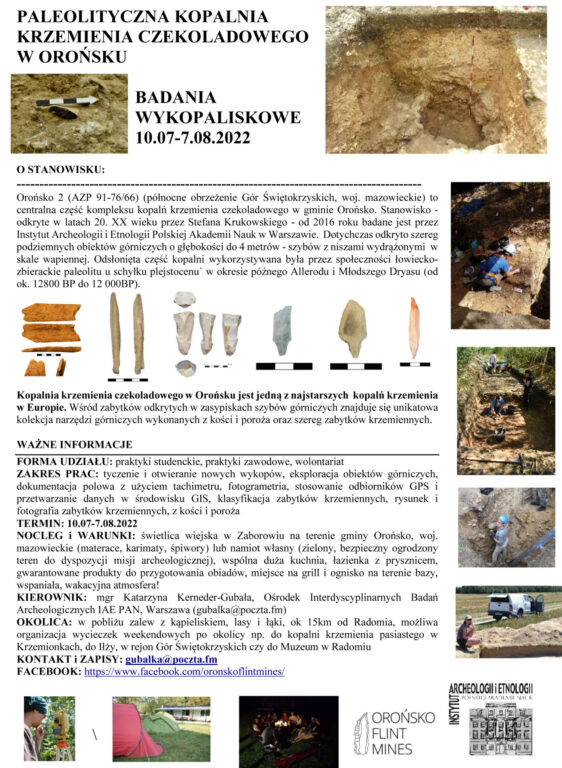
Studencko-Doktorancka Archeologiczna Konferencja Naukowa „Artefakt” – linki do bloków
Serdecznie zapraszamy do udziału w studencko-doktoranckiej archeologicznej konferencji naukowej „Artefakt”, która odbędzie się w dniach 21-22 maja, 2022 r. w budynku Wydziału Archeologii oraz online.
Szczegółowy program konferencji
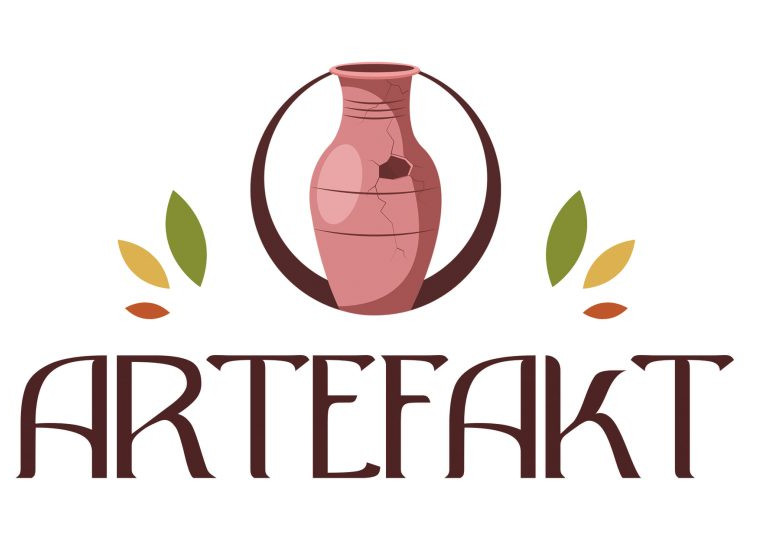
Linki do bloków:
Blok: Archeologia Ameryk i Dalekiego Wschodu oraz Archeologia średniowiecza i Nowożytności
Termin: 21 maja, godz. 9.10-12.40 i 14.20-17.10
Link: https://meet.google.com/pvn-jjfn-zzs
Blok: Warsztat Archeologa oraz Bioarcheologia
Termin: 21 maja, godz. 9.10-12.40 i 14.20-17.10
Link: https://meet.google.com/pwq-khkd-puw
Blok: Archeologia Rzymu i Grecji oraz Archeologia Bliskiego Wschodu i Egiptu
Termin: 22 maja, godz. 9.10-13.00 i 14.20-17.10
Link: https://meet.google.com/xun-ughh-fgf
Blok: Archeologia Prehistorii i Protohistorii
Termin: 22 maja, godz. 9.10-13.00
Link: https://meet.google.com/psx-hakj-vqq
Dalsze informacje można znaleźć na stronie konferencji „Artefakt”
Studencko-Doktorancka Archeologiczna Konferencja Naukowa „Artefakt”
Serdecznie zapraszamy do udziału w studencko-doktoranckiej archeologicznej konferencji naukowej „Artefakt”, która odbędzie się w dniach 21-22 maja, 2022 r. w budynku Wydziału Archeologii.
Szczegółowy program konferencji

Dalsze informacje można znaleźć na stronie konferencji „Artefakt”
Miasteczko na Styku Kultur – Cultural HotSpot UW
Drodzy Studenci,
Uniwersyteckie Centrum Wolontariatu, Samorząd Studentów UW oraz Welcome Point zapraszają Was do współtworzenia 2. edycji wyjątkowego wydarzenia: Miasteczka na Styku Kultur – Cultural HotSpot UW. Będzie to wspaniała okazja do pokazania wielokulturowego potencjału naszej społeczności, a także przestrzeń do wymiany kulturowej.
Miasteczko na Styku Kultur ODBĘDZIE SIĘ 20 MAJA (PIĄTEK) NA TERENIE KAMPUSU GŁÓWNEGO UW (ul. Krakowskie Przedmieście 26/28).
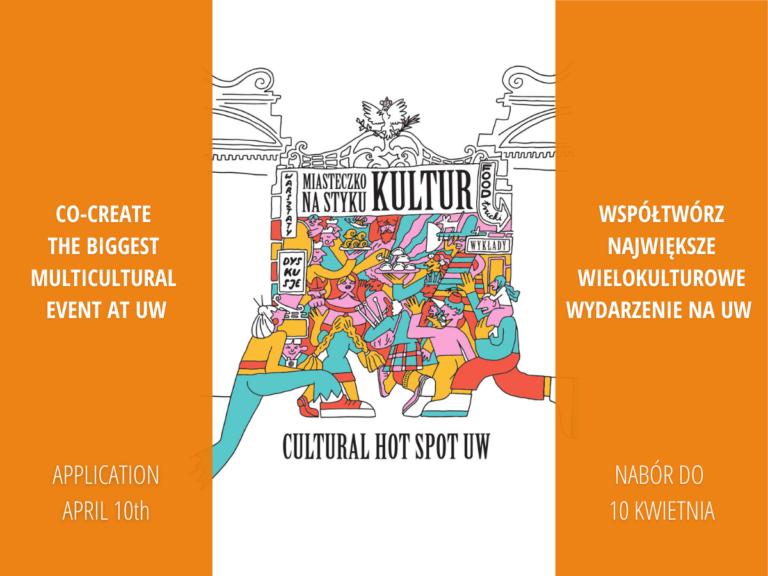
Jeżeli chcielibyście sprawdzić się w roli kulturowych ambasadorów swojego kraju, Miasteczko na Styku Kultur jest ku temu idealną okazją! Możecie zaprezentować swój język, kuchnię czy obyczaje – wybór należy do Was, każdy kreatywny pomysł jest mile widziany!
Czego od Was oczekujemy?
• uczestnictwa w warsztacie międzykulturowym połączonym ze spotkaniem organizacyjnym (na początku maja, dokładna data zostanie ustalona z wolontariuszami i wolontariuszkami);
• obecności na wydarzeniu w dniu 20 maja między południem a wczesnym wieczorem (dokładne godziny zostaną podane wkrótce). Zapewnimy Wam napoje i posiłki;
• pomysłu na Wasze stanowiska. Ze swojej strony zapewnimy przestrzeń stoiska dla każdej kultury oraz niezbędne materiały.
ZAINTERESOWANYCH PROSIMY O wypełnienie formularza wolontariusza znajdującego się pod linkiem https://wolontariat.uw.edu.pl/ankieta-wolontariusza/ z zaznaczeniem opcji “Organizacja Miasteczka na Styku Kultur – Cultural Hot-Spot UW”. Jeżeli już wypełniłeś/aś w przeszłości ten formularz, prosimy o kontakt mailowy pod adresem wolontariat@uw.edu.pl z informacją, że chcesz wziąć udział w wydarzeniu.
Wszyscy wolontariusze otrzymają od nas CERTYFIKAT UCZESTNICTWA oraz PAKIET GADŻETÓW.
Serdecznie zapraszamy do udziału!
Z pozdrowieniami,
Organizatorzy
